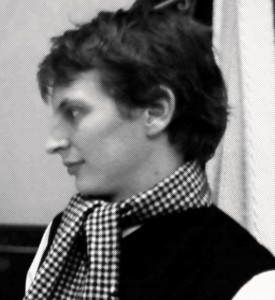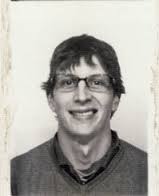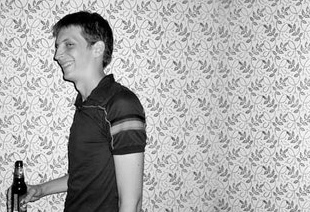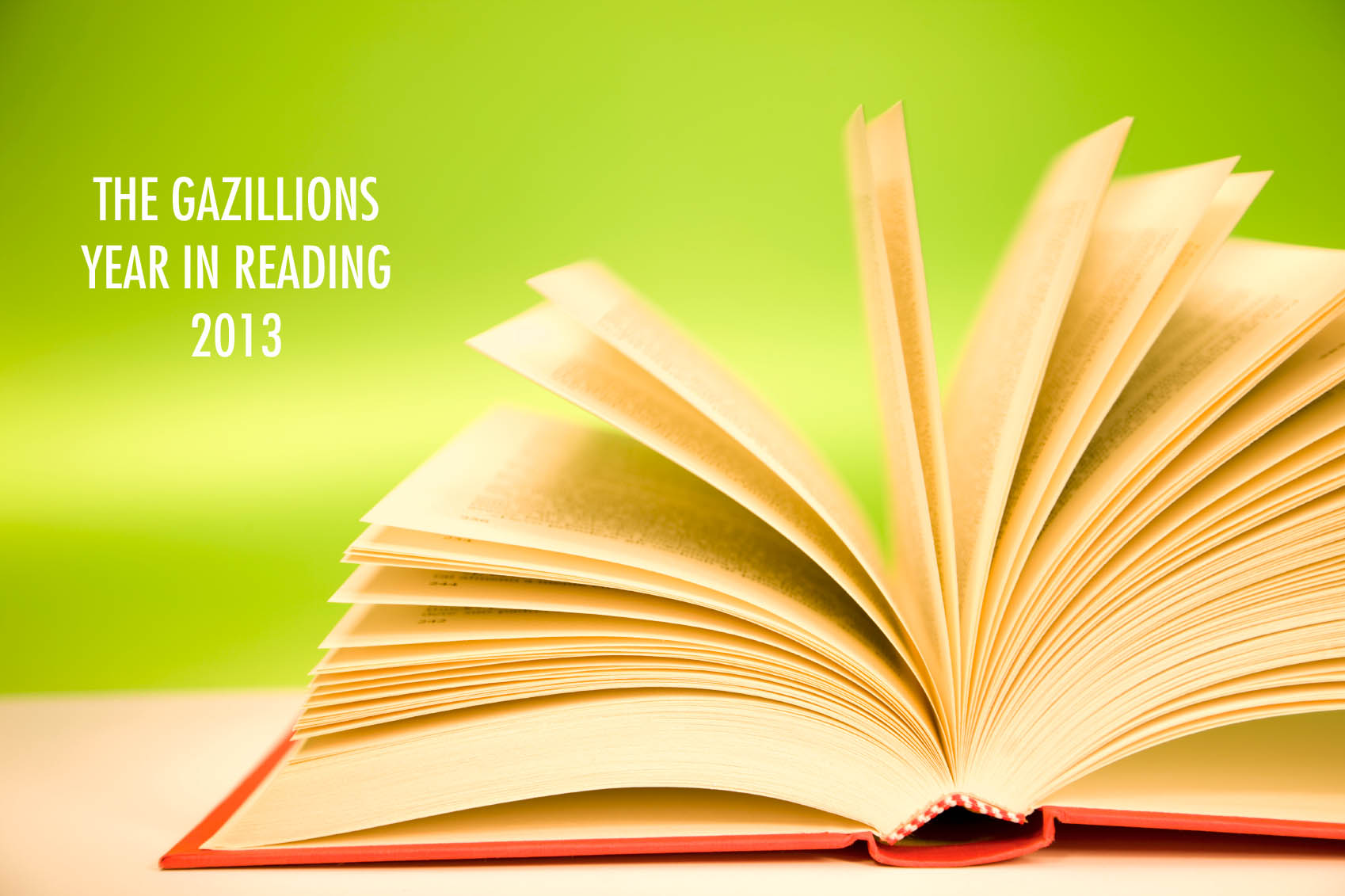Well, the end of another mighty reading year has arrived. Since we don’t have any new tricks left in our magician’s kit, it’s time to mix our metaphors and roll out our annual staple, which should growl around social media with all the wolflike éclat of those dogs barking “Jingle Bells” on the radio. The time has come to harass dozens of distinguished novelists hoping for a bit of meager attention after being denied review coverage in what’s left of the newspapers — through email, through threatening telephone calls, through an unemployed bouncer named Guido who we picked up in our Prius in New Jersey. We have asked writers and thinkers to take precious time out of their schedules to write several paragraphs (without pay!) for this Most Important Literary Website, which is, after all, More Important than their fiction and, frankly, More Important than you.
We ourselves are not real writers. But we’ve toiled long enough in the online books world to know that if you want to get mentioned at the right cocktail parties, all you have to do is (1) refer to yourself in the first person plural to suggest some august and powerful entity inspiring fear in the nervous hearts of publicists and (2) run middlebrow pablum for years until Dwight Garner gets bored enough to name-check you in an interview. (Thanks Dwight! We love you too! Can we come over to your house and drink iced tea and play backgammon?)
We readers tend to be a thoughtful bunch, sometimes even remembering the titles of the books we skim. We are true intellectuals, able to dust off a 111-year-old novel from our shelves and offer a feeble comparison to a fashionable vegan hipster who most tasteful readers loathe with every fiber of their being. But when we’re not patting ourselves on the back for our achievements, we’re making lists, invaluable lists that you must print out and share and tweet and like and otherwise disseminate into this mortal online coil so that our egos can live to inflate another day!
With this in mind, we offer you The Only List You’ll Need for the tenth year in a row. We have begged, bribed, babbled, cajoled, and sobbed like infants to corral the below guests, who have offered their invaluable ruminations on What You Should Read. Listen to their wisdom! Know that we had them all over a barrel at some point! Know that many of these participants were terribly afraid!
 Jennifer Bartleby, author of I Would Prefer Not To:
Jennifer Bartleby, author of I Would Prefer Not To:
Imprimis: I am a reader who, from her youth upwards, has been filled with a profound conviction that the easiest books are the best. I belong to a profession proverbially energetic and nervous, a terrible workplace with an open office plan. I am one of those unambitious journalists who never pounds the pavement and who refuses to use the phone. The cool tranquility of a listicle gets me through a rather restless day. All who know me consider me an eminently safe reader. The late Lou Reed, a personage given to poetic enthusiasm, once saw me in the Village streets and told me to fuck off. Stirred from the bliss of this perfect day, I picked up Garth Risk Hallberg’s City on Fire and began to feel six years of hard creative labor pounding me with an alternative view of the universe. Big political ideas, tightly knitted stories. It was a movie that I was content to hold in my hands. As long as I imagined that Hallberg’s opus was a movie rather than a book, and as long as Scott Rudin remained involved in sustaining the illusion, I could ignore the fact that this wasn’t a beach read. I could ignore the fact that I wasn’t really reading.
Ronald Donald, author of I’m Not the Clown You Think I Am:
I never met Willard Cot, but, as someone with more than five decades of hurt from associative insults, I share Cot’s pain at being misidentified as a Today Show weatherman. It doesn’t matter. Because if there were actually a Ronald Donald mascot for a fast food franchise, he would be rubbed from the history books, left to be ridiculed by guys spending too much time on Wikipedia edit wars. As any lofty essay on this website will remind you, we long for physical space, but inevitably find callow apothegms and crass sentiments that we can argue about on Twitter.
I hate Jonathan Franzen. Hate him. And you should too. Never mind why.
Usually I hate white male novelists. But Garth Risk Hallberg’s City on Fire proved to be the one book written by a white male that I could read to the bitter end. It felt good to read another white male. As comfortable as walking in a gentrified neighborhood. As soothing as watching another Golden Arches erected in a new American pocket of nowhere. Garth Risk Hallberg is the best white male novelist of his generation. Read him. Never mind why.
 Raquel Fertilizer, author of A Tumblr I Spent Six Minutes of My Life Putting Together Turned Into a Book That Nobody Read:
Raquel Fertilizer, author of A Tumblr I Spent Six Minutes of My Life Putting Together Turned Into a Book That Nobody Read:
This year, I read 22 books. With the exception of one novel, which I’ll be getting to in a minute, none of them were more than 180 pages. It is true that I am illiterate, that I spend most of my time pushing down my closeted fury through passive-aggression when I’m not putting out the relentless lie that everything in the world is JUST SUPER! But there was something about Darth Disc Tallboy’s City on Fjords (is that the right title?) that stirred my inner child, the giddy hateful adolescent that I still wear well into my thirties. The book was longer than 180 pages. 900 pages. But more importantly, the author had nabbed nearly $2 million. Well, I dumped my talentless boyfriend immediately and decided that City on Fjords was a good enough book to spark a NEW (!!!) purpose in my aimless life, which has mostly involved trying to persuade rich people in the tech world, people who are more obnoxious than me and who have ADD, to read. I would make Darth Tallboy mine! Was Darth married? Did he need a muse? A groupie? He wrote MARVELOUSLY well, even if I didn’t understand what he was writing about. As 2014 approaches us and I push ever closer to forty, I feel that Darth’s book will come to define me (and I’m thinking a certain Facebook relationship status update, people!) in ways nobody can expect!
Jamie Hakenkreuz, NPR books editor:
It isn’t my habit to pick and choose. At NPR, we run the reviews. Under my tenure, the reviews are positive. We adopted the “No haters” policy long before BuzzFeed did, but we never had to announce it. What I basically do is work this job until either The New York Times Book Review hires me or someone pays me an obscene amount of money for a superficial biography. Which is why I’m all for Garth Risk Hallberg’s City on Fire — a book that will usher in a new hopeful era of MFAs viewing the publishing game as a new way of winning at Powerball.
 Edward Second Place, host of The Crap She Grooves To Show:
Edward Second Place, host of The Crap She Grooves To Show:
As a man approaching middle age with a sense of inescapable dread, I look back to the more than 500 episodes of my podcast, wondering how I managed to fill up all those hours with highly analytical questions about the terrible music that women listen to. Am I a misogynist? Will VIDA arrest me in the streets? I think they should. Like most self-loathing types in the publishing industry, I want something terrible to happen to me soon. And fast. I am certainly not the reader that the other Year in Reading participants are and, frankly, I’m only writing this entry because the proprietor of this site promised that he would refill my growler. I did manage to read one book that rocked my world. Garth Risk Hallberg’s City on Fire reminded me just how old I was. Its vast and imbricated portrait of a New York in turmoil during the 1970s made me wonder if I should hit the Village and raise some naked hell instead of answering these stupid Year in Reading emails. Not a bad idea. See ya!
Kenny Sunbeam, author of 50 Ways to Leave Your Lover to Love 50 New Lovers You Haven’t Touched Since High School:
I’ve spent the last year reconnecting with old girlfriends that I was assigned in high school English. Oh, the teachers didn’t assign them. No ho ho! The girlfriends were not actual people. They were books. Sexy, sinuous books that were better than people. Books that were designed to appeal to a dormant nostalgia that I cleaved to in my adult years because I had little else. Of course, sometimes you confuse the books with real people and you find yourself in court while someone files a temporary restraining order. And you need to move on to something new.
In this case, it was Garth Risk Hallberg’s City on Fire, a very long novel with a lot of structure to it.
I feel that all healthy relationships require challenge and structure. So I commend Hallberg for his bravery, his effrontery, and his careful hygiene. Most of all, his hygiene. Hallberg has inspired me to floss more regularly, to eat more fruits and vegetables, and to open more doors for strangers.
Gideon Trumpet-Flatulence, author of A Sense of Hubris:
Every now and then, I wake up screaming in the dead of night thinking about townhouses in the East Village. So when Garth Risk Hallberg’s City on Fire washed up in my mailbox, promising to address this issue through a socioeconomic prism of great import, I found myself flipping through its 900 pages and howling like a lunatic until I reached the gripping conclusion. My neighbors knocked on the door, threatening to call the police. But after I explained to them that I was reading the greatest novel published in the last ten years, they backed off, deciding to call the men in white suits. Hallberg’s massive novel helped me to get outside my shut-in existence. It revealed for me what was at stake in my sad life: namely, an inability to leave the house and consider that the carbon-based organisms who saunter the streets actually have feelings too.
 Wendy Wallabo, editor of The Hallberg Monthly:
Wendy Wallabo, editor of The Hallberg Monthly:
For years, I was ridiculed for keeping up a monthly magazine devoted to Garth Risk Hallberg. The haters thought Garth was washed up. Some guy who had little more than A Field Guide to the North American Family in him and a few essays here and there in quality literary publications. But every month, I kept putting out a new issue. I devoted the April 2010 issue to unpacking the deep semiotics of that picture of Garth holding a beer bottle, his head mischievously cocked to one side. Was he drunk? Or was he foreshadowing ambition? I was the first literary critic to point out that Garth wasn’t drinking at all in that picture. The Hallberg Monthly had the guts to stand by its controversial position: that Garth was writing a novel, a big novel, a novel that would be bigger than most of our diary entries. And now my views have been redeemed. Garth Risk Hallberg’s City on Fire is the novel I always imagined it to be. I will read it five times in 2014, ten times in 2015, and fifteen times in 2016. My magazine has a new reason for existing.

http://www.themillions.com/author/edward-champion
That, sir, is some fine artisinally brewed haterade! But I’d watch your mouth, or else I’ll shove a crocodile up your ass and show your insides some style.
The usual sour grapes from EC, who is a generally mean-spirited turd–apparently a quite envious one at that.